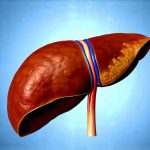Regular elimination is fundamental to overall well-being, often overlooked in discussions about health and vitality. It’s not merely about avoiding discomfort; it’s deeply connected to nutrient absorption, detoxification pathways, immune function, and even mental clarity. When waste products linger within the body, they can contribute to a host of issues ranging from bloating and fatigue to more serious health concerns. Many factors influence bowel regularity – hydration levels, physical activity, stress management, and, crucially, dietary choices. A diet lacking in essential fiber, rich in processed foods, or imbalanced in key nutrients can easily disrupt the natural rhythm of elimination. This article explores how carefully constructed meals, emphasizing specific food groups and mindful preparation techniques, can actively promote regular bowel movements and support a healthier digestive system. We will focus on building sustainable dietary habits rather than quick fixes, aiming for long-term improvements to gut health and overall wellness.
The concept of “structure-promoting” meals is based on the idea that certain foods offer inherent structural support to the digestive process. This isn’t about eliminating food groups entirely but rather incorporating elements that aid peristalsis (the wave-like muscle contractions that move waste through the intestines), provide bulk for efficient evacuation, and nourish the gut microbiome. Think of it as working with your body’s natural systems, not against them. We’ll explore how to build meals around these principles, focusing on whole, unprocessed foods whenever possible. It’s important to remember that individual needs vary significantly; what works optimally for one person may not be ideal for another. Paying attention to your own body’s signals and adjusting accordingly is key to finding a dietary approach that supports consistent elimination and overall health. Understanding the importance of regular meals can be the first step towards improved gut health.
Fiber-Rich Foundations
Fiber is arguably the most critical component of structure-promoting meals. It’s the indigestible part of plant foods – fruits, vegetables, whole grains, legumes, nuts, and seeds – and it plays multiple roles in supporting regular bowel movements. – Soluble fiber dissolves in water, forming a gel-like substance that softens stool and slows digestion, preventing rapid spikes in blood sugar. Good sources include oats, beans, apples, and citrus fruits. – Insoluble fiber adds bulk to the stool, stimulating peristalsis and accelerating its passage through the digestive tract. Found abundantly in whole wheat bread, bran, vegetables like broccoli and carrots, and nuts. A balanced intake of both soluble and insoluble fiber is ideal for optimal gut health.
Simply adding more fiber isn’t always enough; gradual increases are important to avoid bloating and discomfort. Suddenly increasing your fiber intake without adequate hydration can actually worsen constipation. Instead, focus on incorporating small amounts of fiber-rich foods into each meal and snack. For example, add a tablespoon of flaxseeds to your morning smoothie, swap white bread for whole wheat, or include a side salad with lunch and dinner. This approach allows your digestive system to adapt gradually. Furthermore, the type of fiber matters; processed fiber supplements aren’t always as effective as obtaining fiber from whole foods which come packaged with vitamins, minerals, and phytonutrients that support overall health. If you struggle with digestion, consider if blended meals might be easier on your system.
Building meals around these foundations means prioritizing plant-based sources whenever possible. A breakfast of oatmeal with berries and a sprinkle of chia seeds provides both soluble and insoluble fiber. Lunch could be a hearty salad with chickpeas, quinoa, and plenty of leafy greens. Dinner might feature lentil soup served with whole-grain bread. These aren’t restrictive diets; they’re simply mindful choices that prioritize digestive health. Remember to drink ample water throughout the day to help fiber do its job effectively. How to simplify your meals can make a huge difference in maintaining regularity.
Hydration & Electrolyte Balance
Water is essential for all bodily functions, and it plays a particularly vital role in maintaining regular bowel movements. Fiber absorbs water, so inadequate hydration can lead to hardened stool and constipation. Aiming for at least eight glasses of water per day is a good starting point, but individual needs will vary based on activity level, climate, and overall health. Pay attention to your body’s signals – thirst is often an indicator that you’re already slightly dehydrated.
Beyond plain water, incorporating electrolyte-rich beverages can further support digestive function. Electrolytes (sodium, potassium, magnesium) are crucial for muscle contractions, including those in the intestines. – Coconut water is a natural source of electrolytes and hydrating fluids. – Herbal teas, such as peppermint or ginger tea, can also soothe digestion and promote relaxation. – Small amounts of diluted fruit juice can provide some electrolytes, but avoid excessive sugar intake.
It’s important to note that caffeine and alcohol can be dehydrating, potentially counteracting the benefits of increased water intake. While not necessarily eliminating these beverages entirely, moderation is key. Focusing on consistently hydrating throughout the day – rather than trying to “catch up” later – is a more effective strategy for supporting regular elimination. Consider carrying a reusable water bottle as a visual reminder to stay hydrated. Regular walking after meals can also aid digestion and hydration absorption.
The Role of Probiotics & Prebiotics
The gut microbiome—the trillions of bacteria, fungi, and other microorganisms living in your digestive tract—plays an enormous role in overall health, including bowel regularity. Probiotics are live beneficial bacteria found in fermented foods like yogurt, kefir, sauerkraut, kimchi, and kombucha. They help to restore balance to the gut microbiome, improving digestion and reducing inflammation. Consuming probiotic-rich foods regularly can support a healthier digestive system and promote regular elimination.
However, probiotics need prebiotics to thrive. Prebiotics are types of fiber that act as food for beneficial bacteria in the gut. Excellent sources include garlic, onions, leeks, asparagus, bananas, and oats. By consuming both probiotics and prebiotics—a combination known as synbiotic nutrition – you’re effectively nourishing your gut microbiome and supporting its optimal function.
Integrating these into meals is straightforward: add a dollop of yogurt to breakfast, incorporate kimchi or sauerkraut into lunch, and include prebiotic-rich vegetables in dinner. Consider incorporating fermented foods gradually to avoid digestive upset. If you’re considering probiotic supplements, it’s best to consult with a healthcare professional to determine the appropriate strain and dosage for your individual needs. Benefits of elimination diets can help identify food sensitivities that impact gut health. Remember that gut health is an ongoing process; consistent support through diet and lifestyle choices will yield the greatest benefits.
Mindful Meal Composition & Timing
Beyond what you eat, how and when you eat also significantly impacts bowel regularity. Rushing through meals can impair digestion, as your body doesn’t have adequate time to properly break down food. Instead, practice mindful eating: – Sit down to eat without distractions (TV, phone). – Chew your food thoroughly – this aids in mechanical digestion and reduces the burden on your intestines. – Eat slowly and savor each bite.
Meal timing can also play a role. Eating at roughly the same times each day helps regulate your digestive system. Many people find that incorporating regular physical activity after meals stimulates peristalsis, further promoting elimination. Avoid eating large, heavy meals right before bedtime as this can disrupt sleep and digestion. Allowing sufficient time for digestion before lying down is crucial.
Finally, pay attention to food sensitivities or intolerances. Undiagnosed allergies or sensitivities can cause inflammation in the gut, leading to digestive discomfort and irregular bowel movements. If you suspect a food sensitivity, consider eliminating it from your diet for a period of time to see if your symptoms improve. Keeping a food diary can help identify potential triggers. Homemade meals often allow better control over ingredients and preparation methods, minimizing potential irritants. It’s important to approach dietary changes with patience and self-awareness, focusing on building sustainable habits that support both digestive health and overall well-being. Warm meals can also be easier to digest for some individuals.


















